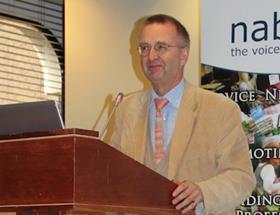
The British government’s food policy ahead of Brexit is akin to post-World War I top-down “food control”, according to Professor Tim Lang.
Writing in The Lancet, Professor Lang said food price rises of 10 per cent, a number revealed in leaked government documents, could be higher due to further sterling devaluation.
The founder of the Centre for Food Policy criticised the secrecy under which the government was preparing for the fallout of a no-deal Brexit, with delays and holdups of imported goods predicted at the Calais-Dover border crossing, describing the situation as “worrying”.
“The UK Government has used government and industry information to develop no-deal Brexit planning assumptions, including for food. These estimates have not been shared with the public,” Lang writes.
“Yet it is the public whose dietary options are now expected to be disrupted. Disruption and shortages are predicted for fruit, vegetables, and short shelf-life food supplies that rely on imports.”
A prominent critic of the government’s lack of food policy since Brexit, Lang said that Brexit disruptions could widen the gap between “advice and reality” as healthy food and fresh produce becomes more expensive.
“The UK Government is making internal decisions that will shape future health outcomes. A food chain emergency liaison group exists; other government committees are covered by the Official Secrets Act. The National Security Strategy existsbut was premised on the actions of hostile external states or interests, not dynamics set in train by government.
“There are few forums for citizens' engagement in preparing for the impact of a no-deal Brexit on food prices and availability.”
Lang said the government is working on the assumption that at least half of haulier’s trucks might be unable to have smooth border transit following a no-deal Brexit, which could see UK ports such as Dover, lose a third of its traffic within one day.
“This situation is worrying. The UK state is reverting to its default positions of centralisation and planning secrecy that are reminiscent of what William Beveridge called, after World War 1, top-down “food control”,’ Lang said.
“What is needed is engaged food democracy. To be fair, the UK Government's rationale for food secrecy is fear of panic buying to which just-in-time delivery systems are vulnerable. Food industries agree; they know border and transport blockages will happen.”



